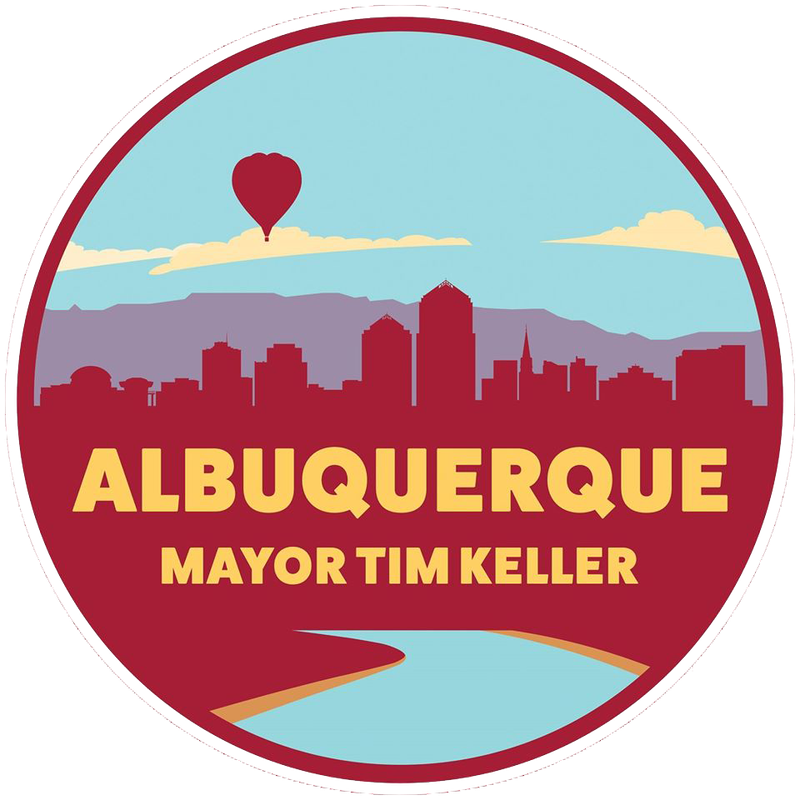
Mayor Keller and City Leaders Discuss Results of Legislative Session; Change Must Continue at Every Level of Criminal Justice System
While a number of Metro Crime Initiative public safety priorities passed, further state action needed to protect New Mexico communities and address homelessness
February 18, 2022
Today, Mayor Keller, public safety leaders, and advocates affected by violence assessed the results of the 2022 legislative session. The press briefing can be viewed here. Throughout the 30-day session, the City and its partners pursued an agenda guided by priorities identified during Mayor Keller’s Metro Crime Initiative. Important, yet incremental, progress was made in key areas such as expanding the Violence Intervention Program, funding for the judicial system, stronger penalties for gun crimes, and fixes to the ankle monitoring system and auto theft laws that will help APD on the frontlines. The City also secured allocations of over $50 million in capital outlay to fund infrastructure needs, community resources, and some public safety projects.
“We came into this session clear that inaction was not an option,” said Mayor Tim Keller. “We gave it all we got, and the outcome was a mixed bag. The state is fundamentally responsible for key aspects of the criminal justice system. We’re grateful for the progress we made and the MCI items that passed, but we know this doesn’t mean we have justice for victims of violence, it doesn’t close the revolving door of crime, and it doesn’t mean we’re going to rest in pursuing the help with homelessness and crime that we need.”
Public safety policy priorities that passed in the 30-day session and now go to the Governor’s desk include:
- Penalty enhancements for the use of a firearm in the commission of violent crime, keeping criminals who use deadly weapons out of communities for longer.
- $1.7 million in recurring funds to expand Albuquerque’s Violence Intervention program in the city as well as a new $9 million fund to expand the program statewide and further support its work in the city.
- Requirements for pre-trial services to share ankle monitor GPS data with law enforcement when requested. The new law will help law enforcement quickly locate an individual on pre-trial release who is believed to have violated the terms of their release and put the community in danger.
- Increased funding for the judicial system, including the creation of a new judgeship in the 2nd Judicial District to help courts manage large caseloads.
- Making the operation of a ‘chop shop’ for stolen vehicles a crime, helping law enforcement crack down on auto-theft at every level.
- Establishment of a state-wide task force to support police departments across New Mexico with officer recruitment and retention.
Over $50 million in capital outlay has been allocated to Albuquerque for infrastructure priorities. The allocations include:
- $15 million towards road improvements, street safety, and traffic calming.
- $3 million to construct a facility for the Albuquerque Community Safety Department at the intersection of Kathryn Ave and San Mateo Blvd SE.
- $12 million for repairs, improvements, and construction of community centers, libraries, museums, and senior centers. Locations include the Westgate Community Center, Los Volcanes Senior Center, the new International District Library, the Explora Center, and South San Jose Community Center
$421,000 was allocated to support the Gateway Center and Gibson Health Hub, $455,000 to construct new affordable housing in the city, and $225,000 for supportive housing renovation. These totals are far lower than the requests made by the administration. The City of Albuquerque has made substantial investments in affordable housing and a $30 million investment in the acquisition, renovations, staffing, and operations of the Gateway Center and Gibson Health Hub. New Mexico relies on Albuquerque as a central provider of services across the state, and as the largest city, it has the greatest need for behavioral health and housing resources. The legislature has made investments in the Gateway Center in past years, and as these centers for health and housing support are built out, the City will continue to pursue additional investment from governmental partners.
###

